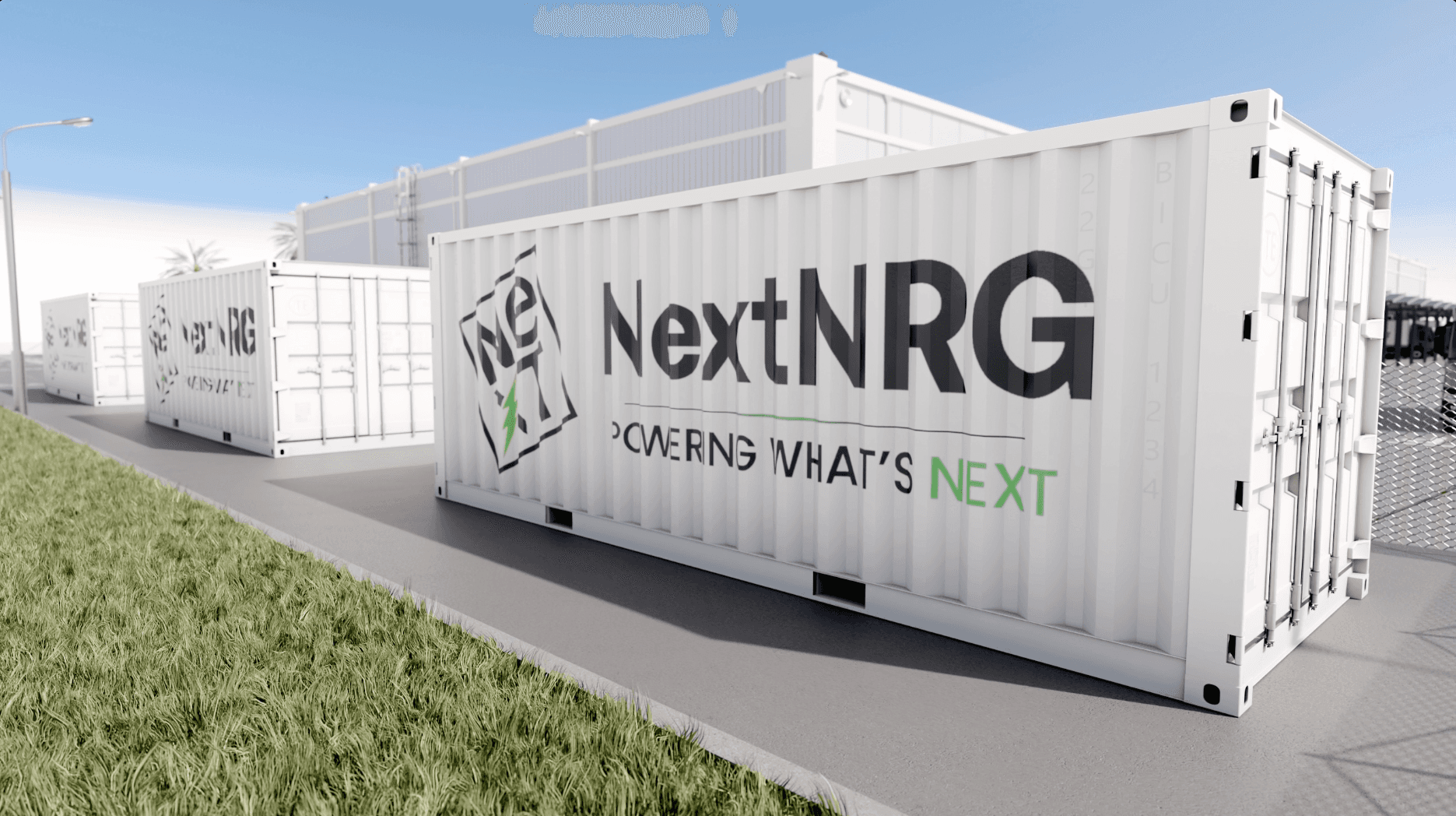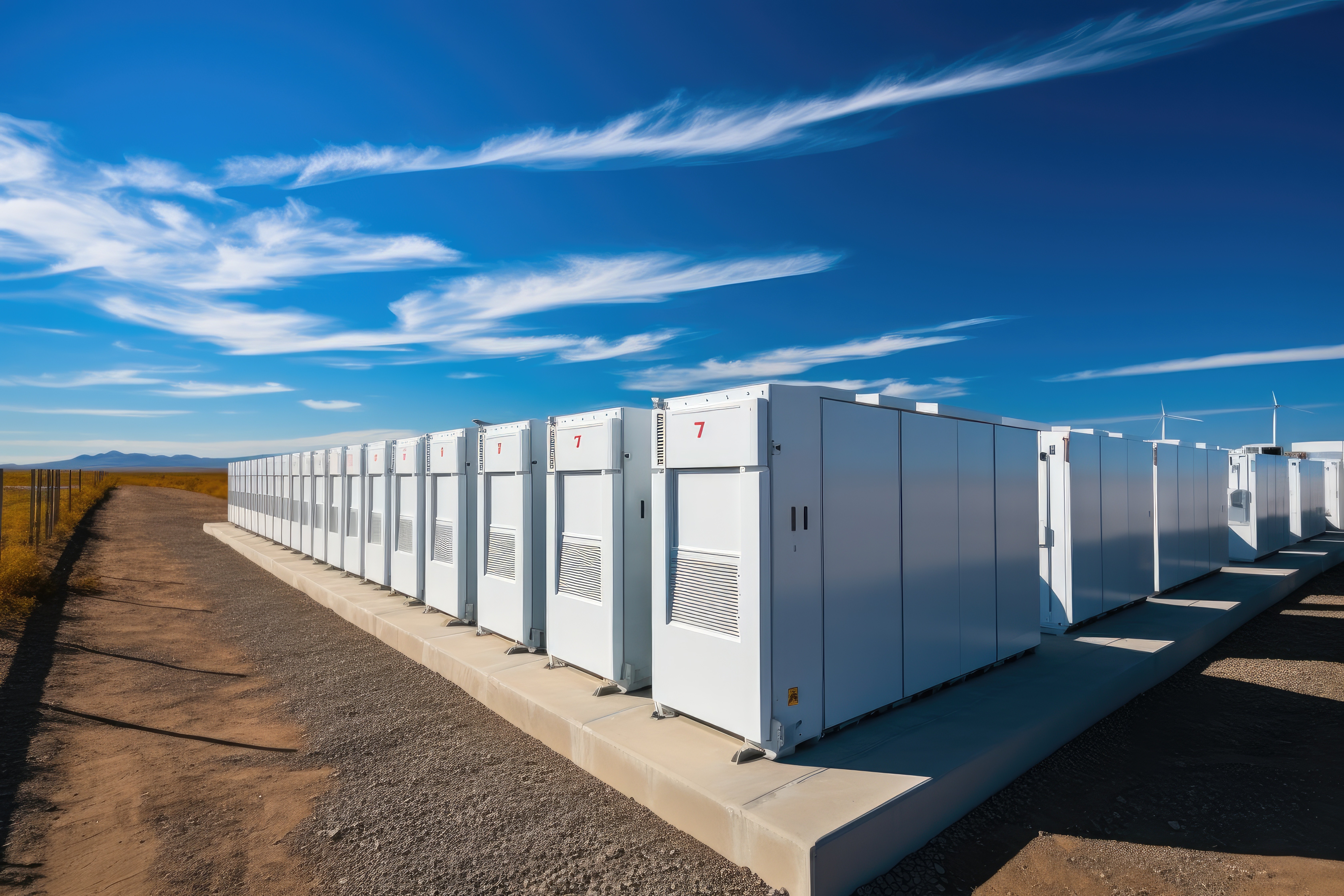
Dec 8, 2024
In the evolving landscape of energy management, commercial solar storage represents a pivotal solution for achieving energy optimization and independence. By harnessing excess solar energy, your business can reduce dependence on the grid, especially during peak demand hours or outages. This transformational approach not only secures your energy supply but also aligns with sustainability goals.
Next NRG excels in this domain, offering advanced Smart Microgrid solutions that integrate diverse power sources for optimized grid efficiency and resilience. By utilizing predictive analytics, their technology can ensure reliable energy management, paving the way for greater operational efficiency in your renewable energy initiatives.
Furthermore, the introduction of wireless EV charging systems enhances the overall energy ecosystem, enabling seamless integration within your commercial infrastructure. With Next NRG, you can leverage cutting-edge AI/ML technology for accurate forecasting and superior power management, ultimately driving the success of your solar initiatives.
Understanding Commercial Solar Storage
Commercial solar storage systems play a vital role in enhancing energy efficiency and sustainability. By effectively integrating solar energy and energy storage technologies, these systems offer significant advantages for businesses looking to optimize their energy usage and reduce costs.
Benefits of Solar Energy and Storage Solutions
Implementing solar energy and storage solutions provides multiple benefits for businesses. Cost savings is a primary advantage; by utilizing solar energy, you reduce reliance on grid electricity, leading to lower energy bills. Additionally, solar battery storage enables you to store excess energy generated during peak sunlight hours for use during periods of low production, enhancing your operational efficiency.
Energy independence is another critical benefit. By minimizing reliance on external energy sources, you can shield your operations from fluctuating energy prices and power outages. Increased resilience is achieved through the ability to manage energy needs efficiently during peak demand or grid failures. Furthermore, leveraging solar power contributes to higher sustainability, reducing your carbon footprint and promoting a cleaner environment.
Components of Solar Storage Systems
Understanding the components of solar storage systems is essential for effective energy management. At the core is solar panels, which convert sunlight into electricity. This energy can then be directed to solar batteries, which store excess energy for later use. Key characteristics of batteries include capacity, discharge rate, and lifecycle, each affecting system performance.
The systems also feature inverters, converting direct current (DC) from solar panels into alternating current (AC) for use in your facility. Additionally, energy management systems are crucial for optimizing the integration of diverse power sources and enhancing grid efficiency. For smart applications, solutions like those from Next NRG leverage advanced technologies, including AI/ML, to ensure efficient energy management, reliable operation, and independent grid reconnections.
With the growing shift toward renewable energy, commercial solar storage stands as a foundational aspect of sustainable business practices.
Economic Impacts of Solar Battery Storage
Solar battery storage systems provide significant economic advantages through enhanced energy management. By reducing electricity costs, maximizing return on investment (ROI) from solar panels, and benefiting from government incentives, these systems present a compelling financial case for businesses and consumers alike.
Reducing Electricity Costs and Demand Charges
Implementing solar battery storage allows you to reduce energy costs by storing excess solar energy during the day for use during peak pricing periods. This strategy can substantially lower your electricity bills, as you avoid purchasing energy during high-demand times, when prices often spike.
Demand charges, based on your peak energy consumption, can contribute heavily to monthly bills. Battery storage systems help smooth out your energy usage profile, enabling you to minimize these charges. By strategically discharging stored energy during peak hours, you can effectively manage and lower demand charges.
Maximizing ROI from Solar Panel Systems
A solar-plus-storage system significantly boosts your return on investment. Integrating battery storage with your solar panel installation allows you to utilize a larger percentage of generated electricity, further decreasing dependence on grid energy.
Next NRG’s Smart Microgrid technology optimizes energy management, effectively enhancing ROI through intelligent distribution of stored energy. This system not only manages energy from solar panels but also integrates diverse energy sources, thus improving overall efficiency. The result is enhanced financial performance from your renewable energy investments.
Government Incentives and Net Metering
Government initiatives, such as tax credits and rebates, can enhance the financial feasibility of solar battery storage systems. Programs supporting renewable energy adoption can significantly offset initial installation costs, making storage systems more accessible.
Net metering allows you to sell excess energy generated back to the grid, further improving ROI. By combining these incentives with efficient storage solutions, you can maximize your savings while contributing to renewable energy efforts. Utilizing Next NRG’s solutions enables you to fully benefit from these opportunities, ensuring a competitive edge in energy management.
Solar Storage as a Reliability Solution
Solar storage systems enhance the reliability of energy supply, particularly during power outages and periods of peak demand. By integrating technology such as advanced batteries, these systems offer capabilities that ensure consistent and dependable power.
Managing Power Outages and Grid Stability
Battery storage systems play a crucial role in managing power outages. In the event of a grid failure, these systems can provide emergency power backup, ensuring that critical infrastructure remains operational. With a reliable energy storage system, businesses can avoid significant losses during outages.
Optimizing grid stability is essential for sustainability. Energy storage solutions stabilize fluctuations caused by renewable sources, balancing supply and demand efficiently. Utilizing systems from Next NRG, you can integrate diverse power sources into a Smart Microgrid, enhancing grid efficiency and resilience. This strategic approach enables smooth transitions during disruptions, maintaining a secure energy supply.
Peak Shaving and Load Shifting Techniques
Peak shaving and load shifting techniques allow you to manage energy consumption effectively, especially during high-demand periods. Battery storage can absorb excess energy produced during off-peak times, making it available when demand surges. This method reduces dependence on the grid and lowers electricity costs.
By employing these techniques, you can achieve significant cost savings while maintaining a reliable power supply. Energy storage systems efficiently shift loads, ensuring optimal performance and reducing stress on the grid. Next NRG's solutions enable you to adapt to dynamic energy demands, allowing seamless integration of energy sources for maximum efficiency. Explore these advanced technologies to enhance your operational reliability.
Installation and Maintenance of Solar Storage Systems
Proper installation and maintenance of solar storage systems are critical for optimizing performance and longevity. You need to focus on selecting the right storage solution, adhering to operational best practices, and understanding warranty and service agreements. Each aspect plays a vital role in ensuring that your investment delivers reliable energy output.
Selecting the Right Storage Solution
Choosing the right solar battery storage system begins with evaluating your energy needs and usage patterns. Factors such as capacity, discharge rate, and cycle life are crucial.
Next NRG offers advanced solutions tailored for commercial applications, providing hassle-free installation as part of their end-to-end service. It’s essential to consider compatibility within the SolarEdge PV ecosystem to maximize efficiency and ensure seamless integration.
Utilizing lithium-ion batteries is common due to their high energy density and shorter charge times compared to traditional lead-acid batteries. Be vigilant about local incentives, which can significantly reduce upfront costs for commercial solar battery storage.
Operational Best Practices for Longevity
To enhance the longevity of your solar storage system, adherence to operational best practices is essential. Regular monitoring of battery performance can help identify issues early.
You should ensure proper ventilation to avoid overheating and follow the manufacturer's guidelines regarding usage cycles and state of charge. It’s advisable to operate your system within the specified temperature range to maintain optimal efficiency and battery life.
Next NRG’s Smart Microgrid technology and AI/ML capabilities further enhance energy management by integrating diverse power sources, ensuring resilient operations, and optimizing grid efficiency. Implementing predictive analytics can help you manage performance and anticipate maintenance needs effectively.
Warranty and Service Agreements
Understanding warranty and service agreements is vital when installing solar storage systems. Standard warranties typically cover a 10-year product warranty, but terms may vary significantly across manufacturers.
You should thoroughly review the conditions and coverage, particularly focusing on elements related to performance guarantees. An inclusive service agreement can also provide peace of mind, ensuring that maintenance is performed regularly to preserve system integrity.
Next NRG emphasizes reliable support for its systems, offering comprehensive service options that align with your operational demands, ensuring that you're covered while maximizing performance throughout the lifespan of your solar storage solution.
Advancing Technologies in Commercial Solar Storage
Recent innovations in commercial solar storage are transforming energy management. You can leverage advanced integration platforms and innovations in inverter technology to optimize energy use and achieve sustainability goals.
Integration with SolarEdge and Other Platforms
Integrating commercial solar storage with platforms like SolarEdge enhances energy optimization. This integration allows you to monitor and manage energy usage efficiently across your solar systems and storage solutions. Utilizing the SolarEdge intelligent inverter, you benefit from real-time data analytics, enabling informed decisions for energy savings.
Additionally, this integration supports scalable energy resilience for commercial buildings. By utilizing energy management systems, you can effectively balance supply and demand, integrating renewable energy sources and optimizing grid efficiency. The system can also accommodate electric vehicles, ensuring seamless energy flow and enhanced capabilities in energy management.
Innovations in Battery Inverter and Management Systems
Innovations in battery inverter technology significantly impact solar storage efficiency. These cutting-edge inverters allow for greater energy conversion and storage capacity. You benefit from systems that enhance longevity and performance for aging battery supplies, ensuring energy remains accessible when needed most.
Next NRG’s approach to Smart Microgrid technology exemplifies this evolution. With effective energy management through diverse power sources, you can optimize reliability and security. Their predictive analytics leverage AI/ML technology to enhance forecasting accuracy, achieving up to 95% reliability in solar output. This level of optimization directly contributes to sustainable energy management strategies in commercial settings.
Don’t Miss Out
Join our newsletter to get latest insights for your brand growth!





